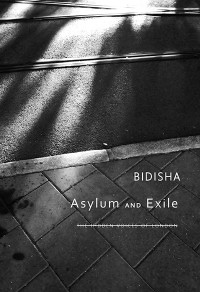Politics are what brought us together, in this room
 Asylum and Exile: the Hidden Voices of London
Asylum and Exile: the Hidden Voices of London
by Bidisha
I picked this book up at its launch in London last week after hearing a few samples from it read aloud. It’s a short, jauntily written memoir that is deceptive in the power of what it has to say.
Bidisha is a British author, journalist and broadcaster who in 2011 started to run creative writing workshops for asylum seekers and other migrants in London, organised by English PEN. She quickly realised that most people who turned up for the class were not interested in becoming writers – they were there to improve their English or to spend some time with people in a similar situation or even to receive the free tea, cake and £8 travel subsidy provided by the charity. But she also found that didn’t matter because she discovered amazing people and had her preconceptions of refugees challenged.
“On the board, I draw a sun with a smiling face and rays and all its clichés flowing out from it: warmth, light, shininess, redness, yellowness and gold, nourishment, hope and life and growth, tanning and health, sunset and sunrise. These are all banned.
A woman with a canny face, gleaming jet skin and matte black eyes chuckles as she prepares to read hers out. Grandly, emphatically: ‘I miss the African sun because it made me sweat out all my African fat.’
Clapping, laughter and loud agreement from everyone.”
Bidisha manages to share the stories of several of her pupils, from the terrible to the funny and/or lovely, without ever being condescending or “bleeding heart”. She uses the pupils’ own words where possible, either from their exercise books or from her own memory. Their stories are short extracts from their lives, often moving, but only ever briefly touch on the worst of what they have been through, most of the bad is left unsaid. As she tried to do in her classes, Bidisha for the most part keeps it light, concentrating instead on how she got to know a group of disparate characters.
However, the book doesn’t hide its political objectives – after all, the class was run by English PEN with the aim of producing one of its pamphlets of creative writing. This book is in some ways an extended version of that pamphlet but injected with Bidisha’s personality, which is infectiously open and hopeful. There were a few sections that could have done with a more thorough edit, but overall I am really glad to have read this book.
“ ‘OK. No more discussions about accents and nationality,’ I say. ‘This is a politics-free zone.’
But national and international politics are what brought us together, in this room, in this country. It’s all-defining and inescapable and is reflected, in one way or another, in everything my students do, say or write…All these people’s lives have been politicized by violence or violated by politics, or they wouldn’t be here.”
Published February 2015 by Seagull Books, as part of their series Manifestos for the 21st Century.
Source: Free Word Centre